
Recent Reviews by Shilajit Mitra
The Hollywood Reporter India
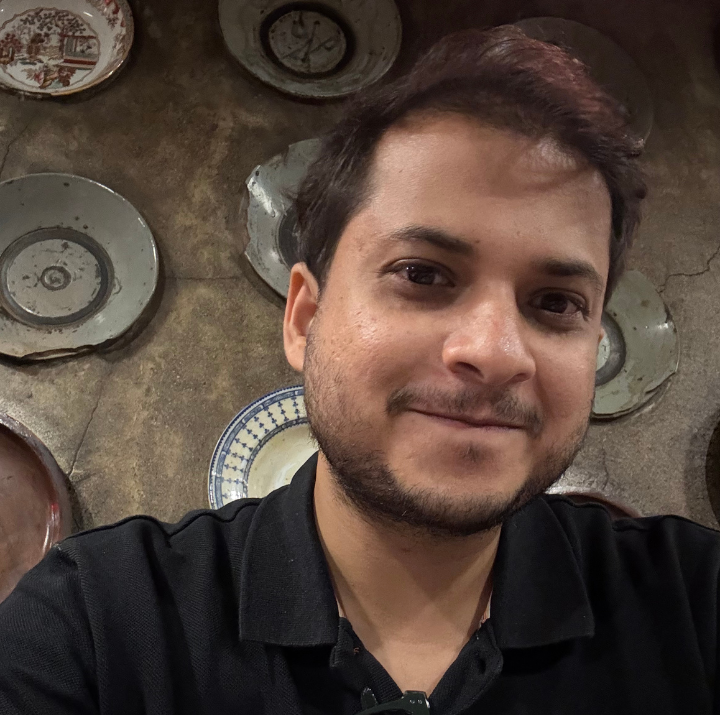
Shilajit Mitra is a film critic and journalist with The Hollywood Reporter India. Based in Mumbai, he has been writing about cinema for eight years. He started out contributing reviews to the Times Now and Zoom websites; later, he worked as a critic and journalist for The New Indian Express and The Hindu. Currently, he covers the cinema world and reviews Hindi films and series for THR India. He has also curated multiple editions of the Critics’ Choice Awards, looking after the short film category.
Films reviewed on this Page
Dupahiya
Dabba Cartel
Hisaab Barabar
Paatal Lok S02
Black Warrant
Girls Will Be Girls
The Sabarmati Report
Singham Again
Love Sitara
Jigra
Dupahiya
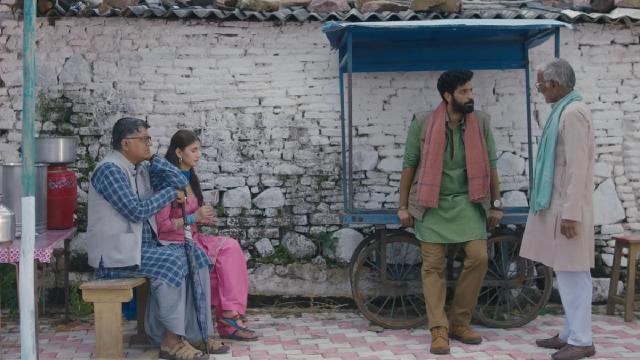
Gajraj Rao brightens this Panchayat lite
Built around a stolen motorcycle in a village, this is a sweet, soporific series that passes the time, with a winsome performance by Gajraj Rao
Gajraj Rao can act in his sleep. Quite literally. An agreeably slapstick moment in the new Prime Video comedy series Dupahiya finds Rao’s character, a kindly but superstitious school principal, snoring away on a cot, making sweet music with those silly, rumbling, guttural sounds. Rao has the training of theatre, of engaging a crowd with the bare tools of physicality and behaviour, and is so warm and winsome a comedian that we tend to forget his nastier roles (he played the menacing, mysterious caller in 2008’s Aamir). Perhaps Dupahiya could have harnessed Rao’s lurking nastiness to lend itself some zing. Built around a stolen motorcycle in a village, this is a ‘Panchayat’ lite, a sweet, soporific series that passes the time, exceedingly flaky and forgettable. Director Sonam Nair, who made the charmingly zany short film Khujli once upon a time, is decidedly out of her depth in the rural setting. The writing (by Chirag Garg and Avinash Dwivedi) is vacant and amateurish, the texture crumbly and second-hand. The oddball cast exhausts its whimsy in the first three episodes; indulged for six more, they verge on annoying.
All 4 reviews of Dupahiya here
Dabba Cartel
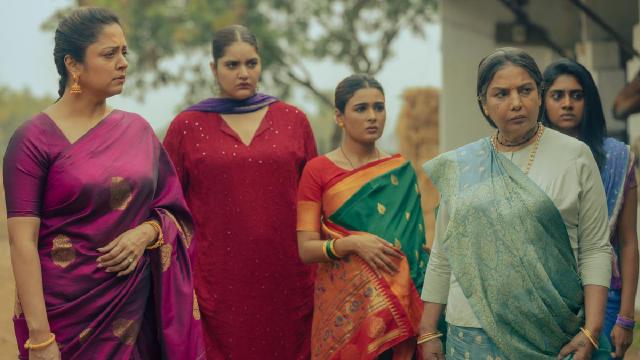
Shabana Azmi, Jyotika show doesn’t take off
The seven-episode Netflix series wobbles between coolness and chaos, menace and mirth, never quite finding its pitch
Shabana Azmi is the fiery queenpin of a female outfit. They ply a disreputable trade. Her underlings feel the heat of her glare. She suffers no fools. I’m talking, of course, about a film called Mandi, directed by the late, great Shyam Benegal and released in 1983. Its coolness remains unsurpassed, 42 years on. Dabba Cartel, a new Netflix crime series with Azmi again at the helm, tries its best to be cool. Co-created by Shibani Akhtar, the show has a novel core: a home chef’s dabba (tiffin) delivery business spirals into a perilous drug operation. The pin-balling narrative is tugged along over seven episodes. The characters are stock, but, coming at you in numbers, they keep up a busy rhythm, like players on a revolving stage. It has the mark of an Excel production: ample efficiency, not a lot of excellence.
All 6 reviews of Dabba Cartel here
Hisaab Barabar
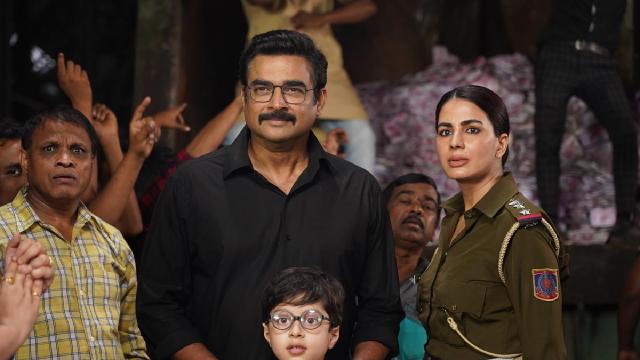
R Madhavan does the math in toothless comedy
Directed by TV veteran Ashwni Dhir, this comedy on banking scams is tame and unambitious
Some films suffer from a surfeit of ambition. Others—like Ashwni Dhir’s Hisaab Barabar—have none to begin with. A middling comedy about the middle class, it tracks a common man’s crusade against fraudulent banking practices. A modest, toothless satire, the film boasts sitcom staging and visuals, lacking cinematic bite. No wonder it’s streaming on ZEE5, a platform with a near-magnetic affinity for mediocrity. It’s like one of those spec scripts that lie around in production offices gathering dust; until, one day, for some inexplicable reason, they are hurriedly greenlit. Radhe Mohan Sharma (R Madhavan) is a senior ticketing inspector with the Indian Railways. Blessed with an accountant’s eye (and ethics), he spends hours pouring over his bank statements, fishing for discrepancies. When an alarmingly high sum of ₹27.50 doesn’t tally up in his books, Radhe raises a complaint with the bank. The officials he corners first feign ignorance, then try to fob him and other customers off with compensatory gifts.
All 4 reviews of Hisaab Barabar here
Paatal Lok S02
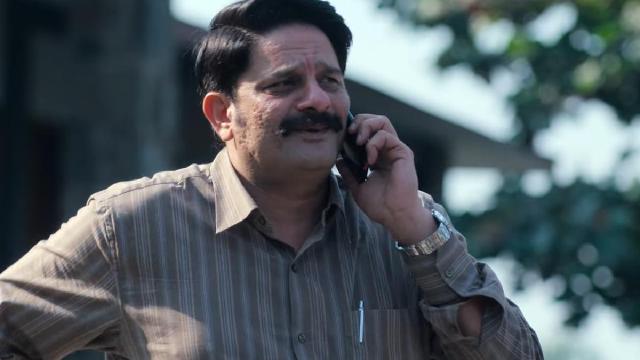
Jaideep Ahlawat keeps the show on the road
While missing the kaleidoscopic quality of the first season, Sudip Sharma and Avinash Arun’s crime series is still smart, competent television
Reunions are always bittersweet. And then there is Sudip Sharma’s idea of a reunion. In the new season of Paatal Lok, Hathi Ram Chaudhary (Jaideep Ahlawat) first catches sight of his old pal Ansari (Ishwak Singh) at a morgue. Ansari was once his junior at their inconsequential Outer Jamna Paar police station. Now, though, as a hotshot IPS officer working the big cases, he commands respect. Hathi Ram stands off and stares, resisting contact. A team-up is imminent, but the morbidity of the setting makes it poignant. The Hathi Ram-Ansari friendship is our anchor in Season 2. Created by Sudip Sharma, the first season of Prime Video’s crime series was a pandemic hit—a grim, coruscating procedural, kaleidoscopic in its scale and scope, picking up hot-button topics like caste violence and Islamophobia. The second season is subtler and less combative, subduing commentary in favour of human relations. At times, it becomes a touching meditation on male bonds. When Hathi Ram’s name comes up during a briefing, Ansari corrects his higher-up that he is not an ‘SHO’, just an ordinary inspector. He isn’t being cruel or conceited, just realistic about their differing vantage points.
All 8 reviews of Paatal Lok S02 here
Black Warrant
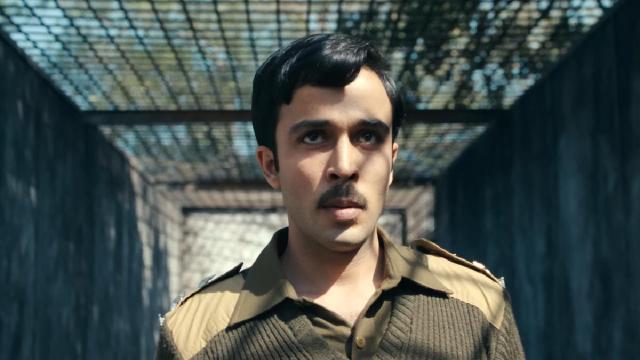
Scenes from a prison
Vikramaditya Motwane’s new Netflix series, starring Zahan Kapoor as a rookie jailer, is a detailed and discomfiting look at the inner workings of Tihar
In the 1920s, a young George Orwell was posted in Burma, as part of the Indian Imperial Police. In a famous essay titled A Hanging — written, in all likelihood, from lived experience — Orwell describes the morning of a prison execution. His unnamed narrator contrasts the minutiae of prison life with the moral shock of capital punishment. “It is curious, but till that moment I had never realized what it means to destroy a healthy, conscious man,” he writes. There is a touch of the young Orwell in Sunil (Zahan Kapoor), a rookie jailer finding his feet in Tihar, Asia’s largest and most dreaded prison. Set in the 80s, Vikramaditya Motwane and Satyanshu Singh’s series is based on the non-fiction book Black Warrant: Confessions of a Tihar Jailer. The real Sunil Gupta, who co-authored the book with journalist Sunetra Choudhury, was a former superintendent of Tihar, while doubling as its press relations officer and legal adviser. In his decades at the jail, Gupta oversaw the execution of several high-profile criminals, including Delhi child murderers Billa-Ranga and Kashmiri separatist Maqbool Bhat. He spoke candidly to Choudhury about his experiences. Once you put a face to the stat, how long can you look away?
All 10 reviews of Black Warrant here
Girls Will Be Girls
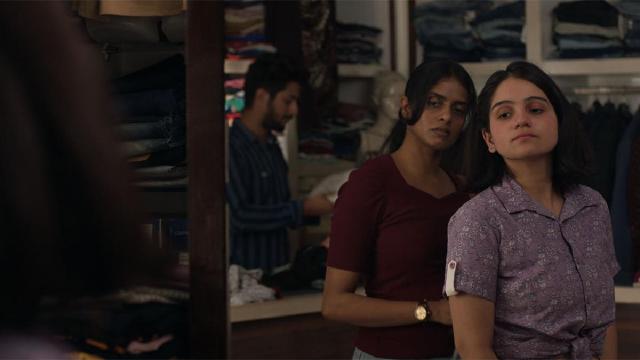
A textured, eloquent coming-of-age story
As mother and daughter, Kani Kusruti and debutante Preeti Panigrahi dance a complex waltz in Shuchi Talati’s psychologically attuned boarding school drama
“I won’t allow anything more than a friendship,” decrees Anila (Kani Kusruti), a very mom thing to say. She is sizing up a tall, sweet boy, Srinivas (Kesav Binoy Kiron), who’s drawn her daughter’s affections at their elite, hillside boarding school. The girl, Mira (Preeti Panigrahi), stands at the door and listens. The camera mimics her watchful gaze. It is a simple domestic intervention, yet it thrums with suspense.
All 10 reviews of Girls Will Be Girls here
The Sabarmati Report
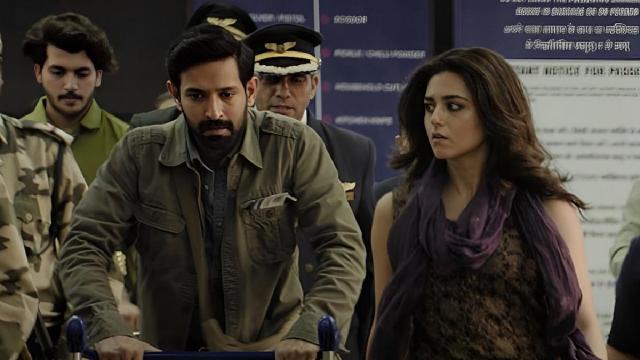
Vikrant Massey boards the propaganda train
Based on the 2002 Godhra train burning tragedy, and its ensuing coverage in the media, this convenient and skewed film is a poor showcase for its leading man
In an interview that went viral ahead of The Sabarmati Report, actor Vikrant Massey, briefly turning political analyst, reflected on the state of the nation. “People say that Hindus are in danger, that Muslims are in danger. No one is in danger; everything is going fine. This is the best country to live in the world,” he declared in a podcast. The nervous naivety of Hindi film actors ahead of a controversial release is always enlightening to witness. It’s a balancing act no gymnast or slackliner can fathom.
All 4 reviews of The Sabarmati Report here
Singham Again
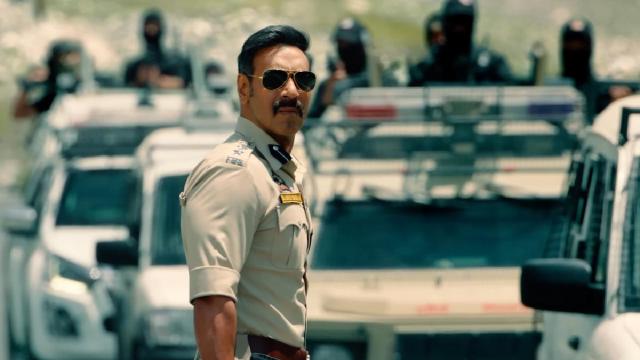
Ajay Devgn returns in deathly dull franchise
Half a dozen cameos and a Ramayana-inspired plotline cannot mask the creative shortfall of Rohit Shetty’s latest cop universe film
There was a time, not long ago, when Hindi blockbuster cinema could stand on its own — distinguishable, say, from mythological soap operas and tacky non-fiction programming on satellite TV. But the laziness and opportunism of the last few years have all but vaporized that distinction. It leaves the theatre-going audience in two minds. Adipurush (2023) was laughably inept yet insistently pious and grim. The same applies to Singham Again, ostensibly an action potboiler and an Avengers-like ‘team-up’ movie but playing like an ad for the tourism ministry’s Ramayana trail.
All 17 reviews of Singham Again here
Love Sitara
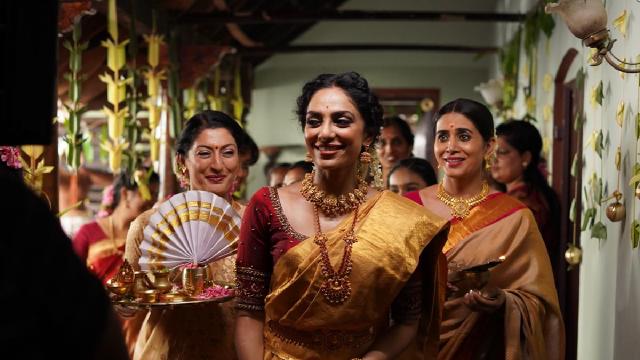
Pre-wedding blues with Sobhita Dhulipala
Sobhita Dhulipala and Rajeev Siddhartha are a couple gearing up for their wedding in this uneven relationship drama
Love, Sitara begins with a nod to Anna Karenina: “All happy families are alike; each unhappy family is unhappy in its own way,” says Sitara (Sobhita Dhulipala). Unlike Leo Tolstoy’s great novel — whose opening line these words are — the writing in Vandana Kataria’s film isn’t as quotable, though it tries hard. You can assemble a slim volume of pithy self-help slogans from Abbas and Hussain Dalal’s dialogue: “Happiness lies in honesty.” “Dysfunction means they are making an effort.” “I’ll fix myself, before I can fix my relationships.”
All 2 reviews of Love Sitara here
Jigra

A spirited Alia Bhatt cannot redeem Vasan Bala’s shaky jailbreak film
Despite its competence and moments of poetry, Vasan Bala’s film fails to engage or excite at a visceral level
Movies can shape us in silly but significant ways. Growing up in the 1990s, for instance, I developed an irrational and premature fear of foreign travel. This had little to do with any growing awareness of geopolitical realities and everything to do with a schlocky Bollywood film starring Sridevi and Sanjay Dutt. Directed by Mahesh Bhatt, Gumrah (1993) — a jailbreak drama set between Mumbai and Hong Kong — was shivery B-movie fun, and it left me with an enduring anxiety. If I clutched my cabin luggage a little too cautiously on my first international flight, nervously looking over my shoulders, I had Bhatt and the duplicitous face of Rahul Roy to thank.